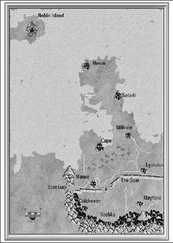Amos Oz - Elsewhere, Perhaps
Здесь есть возможность читать онлайн «Amos Oz - Elsewhere, Perhaps» весь текст электронной книги совершенно бесплатно (целиком полную версию без сокращений). В некоторых случаях можно слушать аудио, скачать через торрент в формате fb2 и присутствует краткое содержание. Год выпуска: 1985, Издательство: Mariner Books, Жанр: Современная проза, на английском языке. Описание произведения, (предисловие) а так же отзывы посетителей доступны на портале библиотеки ЛибКат.
- Название:Elsewhere, Perhaps
- Автор:
- Издательство:Mariner Books
- Жанр:
- Год:1985
- ISBN:нет данных
- Рейтинг книги:4 / 5. Голосов: 1
-
Избранное:Добавить в избранное
- Отзывы:
-
Ваша оценка:
- 80
- 1
- 2
- 3
- 4
- 5
Elsewhere, Perhaps: краткое содержание, описание и аннотация
Предлагаем к чтению аннотацию, описание, краткое содержание или предисловие (зависит от того, что написал сам автор книги «Elsewhere, Perhaps»). Если вы не нашли необходимую информацию о книге — напишите в комментариях, мы постараемся отыскать её.
Elsewhere, Perhaps — читать онлайн бесплатно полную книгу (весь текст) целиком
Ниже представлен текст книги, разбитый по страницам. Система сохранения места последней прочитанной страницы, позволяет с удобством читать онлайн бесплатно книгу «Elsewhere, Perhaps», без необходимости каждый раз заново искать на чём Вы остановились. Поставьте закладку, и сможете в любой момент перейти на страницу, на которой закончили чтение.
Интервал:
Закладка:
Unless you suspect the truth of Zechariah-Siegfried's words, you must admit their logic, even if this only becomes apparent on deeper reflection.
Zechariah's behavior, too, is logical and systematic. He seeks the company of Noga Harish. Sometimes he manages to arouse her curiosity. For the most part, she listens to the sound of his voice, but the words elude her. His voice soothes her. When he is with her, she is relaxed. He pins cautious hopes on her silence. He is convinced that he has the girl in his power. He does not realize that in fact only a gentle torpor keeps her with him. But even this is illusory.
Zechariah also attempts to win the friendship of Gai, as befits a friend of the family. Gai does not respond to his advances. We must wait to see the effect of a Schweigermann bicycle that is at the moment on its way from Munich to Metsudat Ram, having been ordered by Herr Siegfried Berger as a present for his admirable young friend Gai Harish.
Naturally, Zechariah does not overlook the father. He is the principal obstacle. The girl will not be able to withstand his collapse. A tear or two, and the whole careful edifice will tumble like a house of cards. The matter demands careful consideration. Reuven Harish is adamantine. His sympathy cannot be bought for the price of a modest German edition of his selected poems. Vulgar methods will not succeed with him. There is a clash of principles, like the clash of iron on iron, or the conflict between mountain and valley, to borrow our dear pioneer's own favorite metaphor. His friendship may be won gradually, of course, by flattery. But that course demands a protracted effort, whose outcome is far from certain. On the other hand, this Harismann is suffering from a complaint, whose details deserve careful attention. Certain illnesses, under unusual circumstances, can dispose of a man at a blow. And in case of any disaster, the girl passes legally into her mother's care, and that puts an end to subterfuge. And besides all these possibilities, there are other courses of action open. We can bring the law round to our side. That is the proper way for decent, law-abiding citizens. Perhaps what we really need is an intelligent lawyer. Let's go over the facts carefully: a couple have two children. The parents have been divorced for some years. Both are in their right mind. Both are financially capable of supporting the children. In such a case, legal common sense suggests that the father should have custody of the son and the mother of the daughter. That would be an equable solution in the true sense of the word. The fact that the mother has so far taken no steps to exercise her legal right detracts in no way, of course, from the legal validity of that right. And especially, gentlemen of the jury, since the father has by his own actions sacrificed both his moral and his legal right to the custody of the children. We deeply regret having to publicize the fact that he has embroiled himself in a personal scandal, the details of which my client can supply without any difficulty, and the harmful effects of which on the minds of the children will be attested by the eminent psychologist whom we shall call in due course. The mother, on the other hand, is happily remarried and her morals are above reproach. To this, likewise, we shall bring incontrovertible testimony. The conclusion, gentlemen, is logically inescapable: it is the mother, and not the father, who is entitled, on both legal and moral grounds, to have custody of the children. My client, however, is prepared to display outstanding generosity. She does not insist upon invoking the full rigor of the law. She is prepared to settle for a reasonable compromise, disregarding the father's misdemeanors and general conduct. Our offer is straightforward and exceedingly generous: he may keep the son. But on my client's behalf let me warn him that if he dares to reject our offer, considerate and magnanimous as it is, we shall challenge his right to the son as well, and he may find himself the loser on both counts.
The case rests. But this course must be a last resort. We want the deer unwounded. Netted, not shot. I haven't come to drag the girl away kicking and screaming. I want to get Harismann's blessing. And get it I will. He is a man of ideals. I shall use his ideals to break through his defenses. He will give his blessing, and I shall deign to accept it, as a favor. I shall accept out of humanitarian motives. He'll beg me to take her.
Needless to say, the visitor's thoughts were not outwardly apparent. His appearance was neat and smart. He radiated a smell of luxurious grooming. He divided his time between his brother's family and theoretical lectures to Noga, between dear little Danny, who provided him with much entertainment, and the swimming pool, which also saw a great deal of him and became accustomed to the unexpected power of his muscles. Once a week he traveled to Tel Aviv or Haifa, returning the following day. Bronka and Ezra did not know the purpose of his trips, just as they were uncertain of the purpose of his stay. But to Tomer, in consideration of his youth, Siegfried spoke frankly.
"I go to enjoy myself. Just once a week — no one can accuse me of excess. Surely I'm not expected to live entirely without a woman. When you finally decide to join me, my dear Tomer, I'm at your service, ready and waiting to shower you with delights."
Noga was attentive to her body. Never before had she been so clearly aware of the independent life of her muscles or the warmth of her flesh. She lay on her back with her eyes closed and listened to the sounds of her body. The gentle throbbing of the blood at her temples and wrists, the inner gargle produced from time to time by the digestive juices, the rhythm of her breathing, which was linked to the rhythm of her thoughts, the tender stabbing deep inside her belly.
Previously, Noga had not liked her body. She disliked the coarseness of tangible reality. There was no difficulty in escaping from the body to a dream world of colorful disembodied forms. It was enough to press gradually with two fingers on the eyeballs for bright spirals of color to sweep you away to another world, a world of bells, bells whose tongue you are. Now the pleasures have changed. Now it is into the body, not away from it. To get inside yourself. The same wild dream every night: to be a fetus inside your own body, to curl up in the enclosed warmth.
The posture demanded by this mood: sitting on the floor, at the foot of the bed, knees raised, head between the knees, arms folded round it. Or another possibility: lying on your back and gently, slowly stroking your breast.
Herzl Goldring did not overburden Noga with work. When she left early, he pretended not to notice. If he thought he heard a groan or saw a twitch of nausea on her face, he insisted that she put down her hoe and go and lie down. Once, without any preamble, he said in an acid tone:
"Listen, you don't have to have the baby."
Surprised and half-amused, Noga asked:
"How do you know?"
"Nina thinks so too. So do other people. Lots of them."
"Are you suggesting I should put it to the vote in the assembly?"
"Oh, no, heaven forbid. Of course it's a personal matter, completely private; nobody else has the right to decide."
"Now you're right, Herzl, absolutely right, and when you're right, no one can argue with you."
"Argue? Perish the thought. I wasn't trying to argue. But I feel I ought to apologize."
"You? Apologize? Why? What have you done?"
Herzl was tongue-tied. He concluded:
"Oh, I'm very sorry, I'm really very sorry, Noga. Very sorry."
Needless to say, Herzl Goldring did not repeat his mistake. He never raised the subject again.
Kind people like Herbert Segal took great pains discreetly to influence the general mood of opinion and to surround Noga with an atmosphere of tolerance and friendliness. Not because Herbert justified her behavior, but because reason and compassion led for once to the same conclusion. The girl was facing a strong temptation to leave the kibbutz and the country and to join her mother. Those who took that course never returned. Moreover, Reuven Harish was dear to us all. His troubles were our troubles. We could imagine what would happen to Reuven Harish if his daughter went to live with her mother. When the moment came, we should have to meet and decide on the fate of the child. But we would not crush the girl. We would defer passing judgment and treat her tolerantly. Herbert Segal came to this conclusion early on and did a great deal to impress it on others. He expressed it in various ways, but the fundamental idea was the same.
Читать дальшеИнтервал:
Закладка:
Похожие книги на «Elsewhere, Perhaps»
Представляем Вашему вниманию похожие книги на «Elsewhere, Perhaps» списком для выбора. Мы отобрали схожую по названию и смыслу литературу в надежде предоставить читателям больше вариантов отыскать новые, интересные, ещё непрочитанные произведения.
Обсуждение, отзывы о книге «Elsewhere, Perhaps» и просто собственные мнения читателей. Оставьте ваши комментарии, напишите, что Вы думаете о произведении, его смысле или главных героях. Укажите что конкретно понравилось, а что нет, и почему Вы так считаете.












